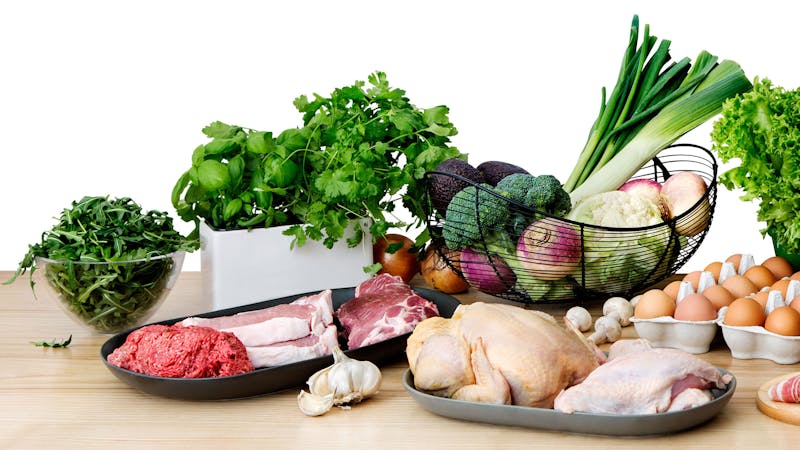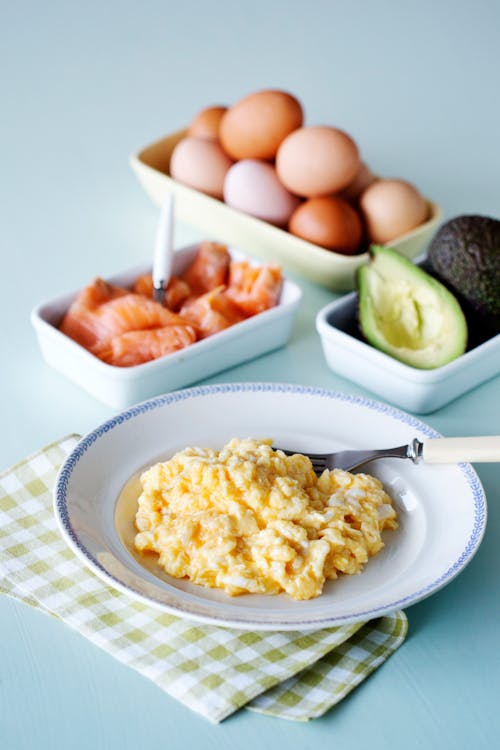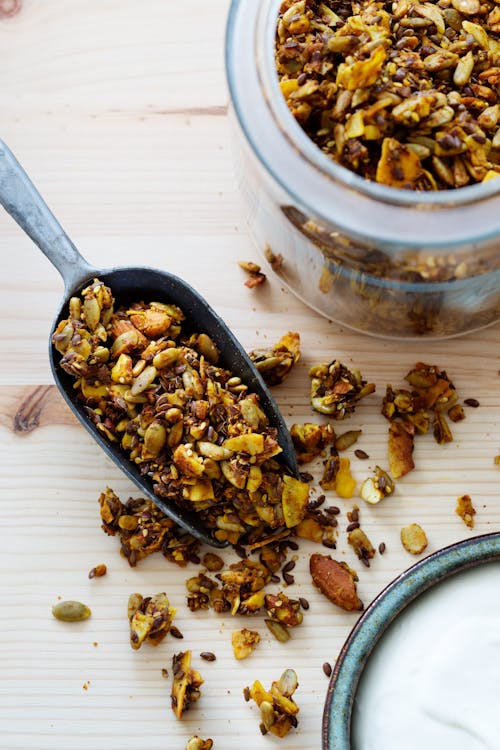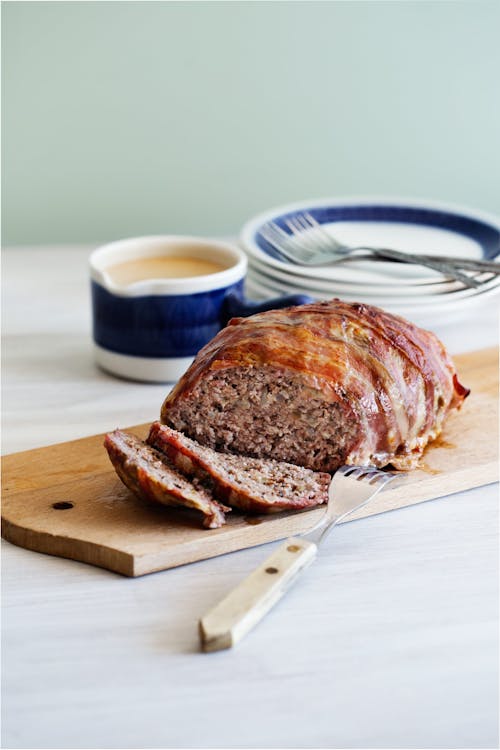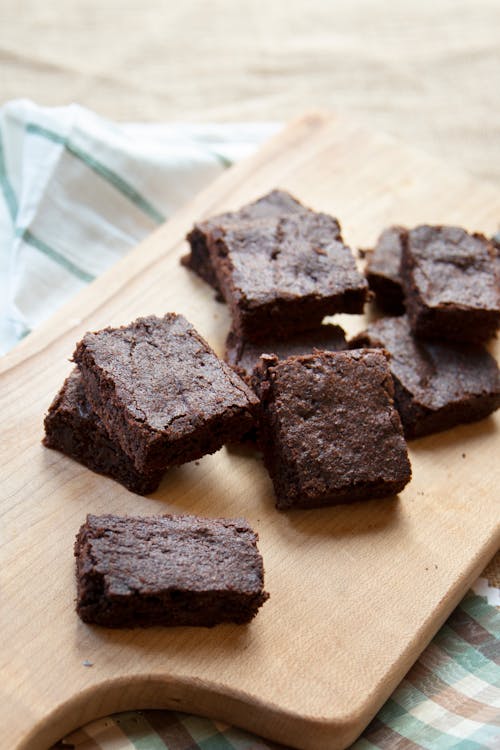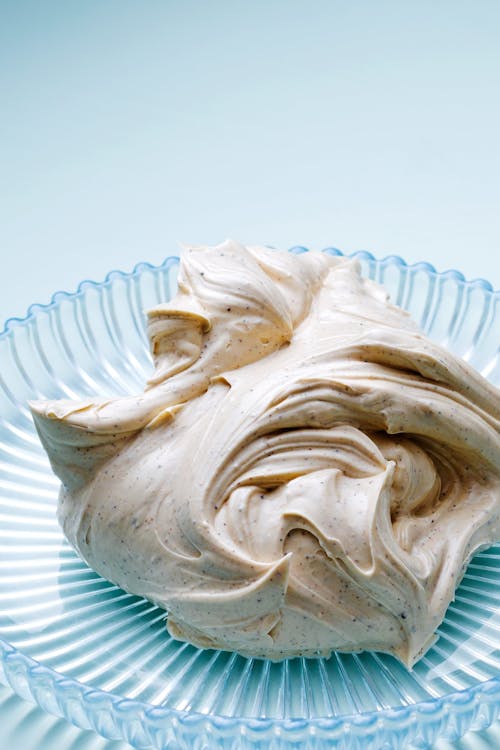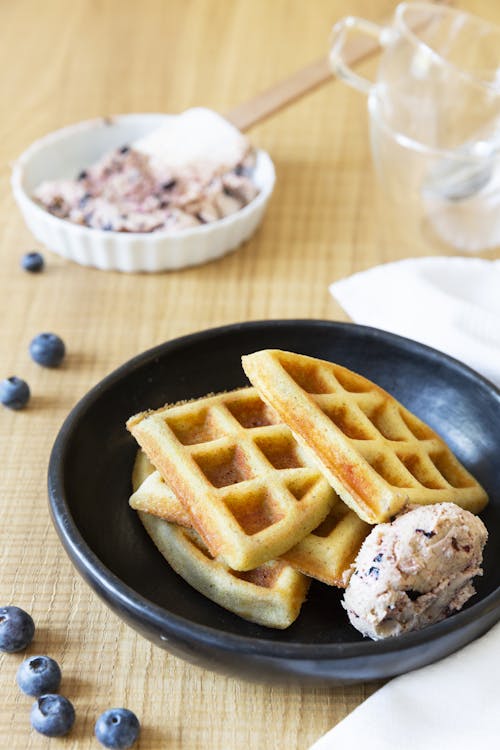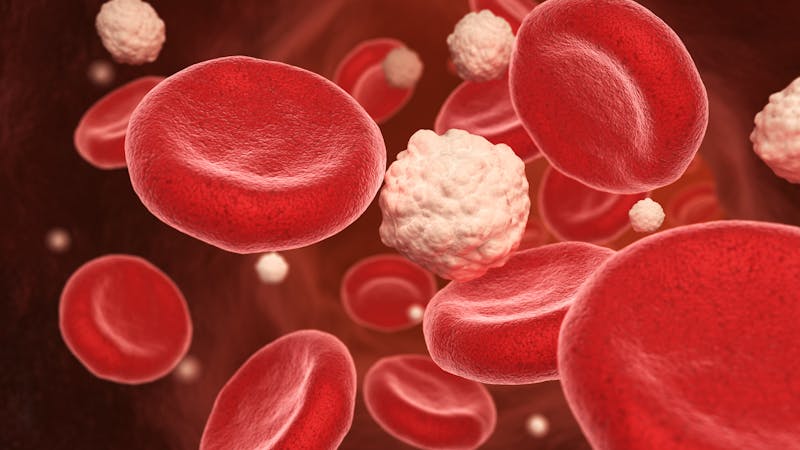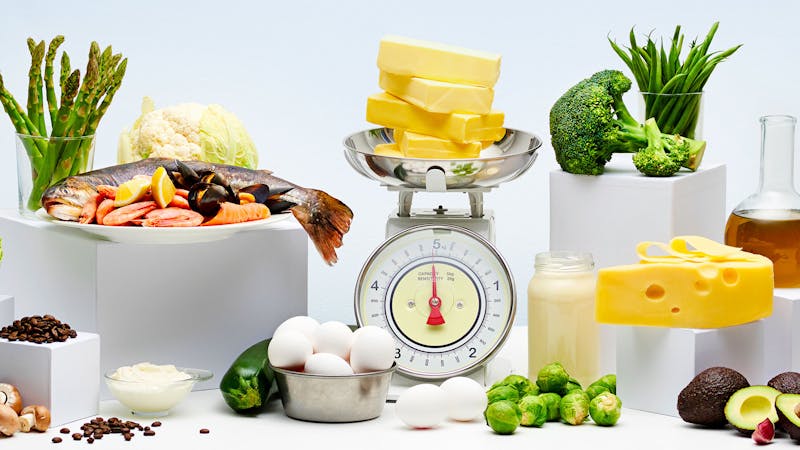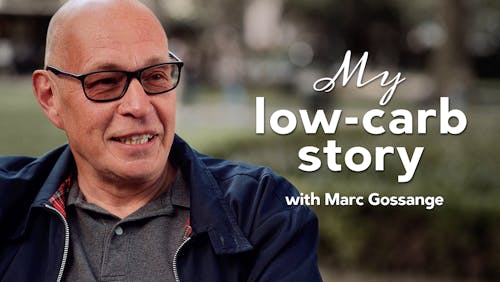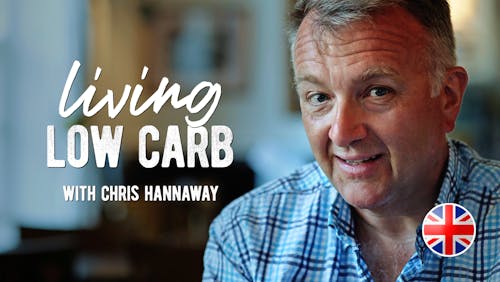The diabetes diet: the best foods to control diabetes
What should you eat if you have diabetes? If you’re confused because you’ve heard a lot of conflicting information, you’re not alone. Fortunately, the answer can be simple: Eat foods that don’t raise blood sugar very much, such as low-carbohydrate foods.1
Although low-carb diets were routinely prescribed for people with diabetes more than 100 years ago — often with excellent results — recommendations to eat more carbs became the standard once insulin and diabetes medications were available.2
Although diabetes medications can temporarily slow the blood sugar rise, they cannot reverse the underlying problem.
Going back to the time-honored approach of eating low-carb foods can help control blood sugar in type 1 diabetes and potentially reverse type 2 diabetes, while reducing the need for medications.3
In this comprehensive guide, you’ll learn what are the best foods to eat if you have diabetes.
In particular, insulin doses may need to be lowered to avoid low blood sugar, and SGLT2 inhibitors may need to be deprescribed. Learn more
Please follow up with your healthcare provider for medical guidance before changing your diet to treat diabetes. If you are looking for a healthcare provider knowledgable with low-carb nutrition, see our find a doctor map.
If you experience severe nausea, dizziness, weakness or fatigue, please take it seriously as these can be symptoms of dangerously low blood sugar. Options include checking your blood sugar, eating carbs or sugar for a short term fix, and contacting your healthcare provider for further guidance.
1. The diabetes diet: what to eat and what to avoid
There are many delicious foods that you can and should enjoy on a low-carb diabetes diet. Here’s a list of the best foods to eat — and the ones to stay away from.
Foods to eat
Protein
- Meat of all types: ground beef, steak, roast beef, pork chops, ribs, sausage, bacon, chicken, turkey4
- Seafood of all types: fish, shrimp, scallops, oysters, clams, mussels, crab, lobster
- Canned fish of all varieties: tuna, salmon, sardines, anchovies
- Luncheon meat: ham, roast beef, pastrami, salami, pepperoni, turkey, chicken5
- Eggs6
- Tofu, edamame, tempeh7
Full-fat dairy products8
- Cheese: all varieties9
- Greek yogurt, ricotta cheese, or cottage cheese (limit to one-half cup)10
- Butter, cream, whipping cream, ghee11
- Sour cream and cream cheese
Natural fats12
- Natural oils (olive oil, coconut oil, avocado oil, nut oils of all types)
- Lard
- Tallow
- Chicken fat (schmaltz)
- Duck fat
- Coconut milk
- Coconut cream (unsweetened)
Vegetables
All non-starchy vegetables, including:
Arugula
Asparagus
Avocados
Bok Choy
Broccoli
Broccolini
Brussels sprouts
Cabbage
Cauliflower
Celery
Celery root
Cucumbers, pickles
Eggplant
Endive
Fennel
Garlic
Green Beans
Greens, all types
Green onions
Heart of Palm
Jicama
Kale
Leeks
Lettuce
Mushrooms
Okra
Olives
Onions (small amounts)
Parsley
Peppers
Pumpkin (unsweetened)
Rhubarb
Scallions
Shallots
Snow peas
Spring onions
Sugar snap peas
Sprouts
Spinach
Squashes (summer)
Tomatoes
Zucchini
Berries (limit to one-half cup per day)13
- Blackberries
- Raspberries
- Strawberries
Nuts (limit for weight loss)14
- Almonds
- Brazil nuts
- Hazelnuts
- Macadamia nuts
- Pecans
- Peanuts
- Walnuts
- Coconut (unsweetened)
Seeds
- Chia seeds
- Flaxseed
- Hemp seeds
- Sunflower seeds
- Pumpkin seeds
- Sesame seeds
Condiments
- Herbs and spices (no added sugar)
- Hot sauce
- Mustard (plain)
- Tomato salsa (limit to 2 tablespoons)
- Soy sauce or tamari
Beverages
- Water (still or sparkling)
- Coffee
- Tea
- Broth
- Dry wine (limit to 1 glass per day, consumed with a meal)15
Foods to avoid
Avoiding any foods that aren’t on the list above can help prevent blood sugar elevations. This includes many foods that most people agree are not good for your health, like:
- Sugar in any form: white sugar, brown sugar, coconut sugar, honey, maple syrup, agave
- Cakes, pies, cookies, ice cream, candy, and other sweets
- Pizza, hamburgers and hot dogs, burritos, and similar foods
- White bread, white rice, pasta, and potatoes
- Soda, punch, sweetened tea and coffee, sweet alcoholic beverages
- Beer
- Whole grains (cereal, pasta, bread, tortillas, rice)
- Sweet potatoes
- Corn
- Beans and lentils
- All fruit juice and most fruit (other than berries)
Diabetes breakfast tips
A good diabetes breakfast needn’t be elaborate or time-consuming. In fact, it can even be skipped altogether if you’re not hungry.17
There’s also no rule that your first meal must contain traditional breakfast fare, like eggs. Although eggs are always an excellent choice, last night’s leftovers are great too — and a huge time saver on busy mornings.
Here are a few quick and easy breakfasts to get your day off to a good start:
Popular breakfasts
Diabetes meal tips
What can you eat for lunch when sandwiches are off the table? How do you plan a balanced dinner without potatoes, pasta, or rice? No need to worry — the options are unlimited!
Little changes can make a big difference:
- Use lettuce in place of bread for sandwiches and burgers
- Shred cauliflower and pan-fry in oil to make cauliflower “rice” for a low-carb burrito bowl, or as a side dish for meat or fish
- Cut zucchini into spirals to make noodles, aka “zoodles”; saute in butter and garlic, then top with chicken or protein of choice
- Boil cauliflower until tender, then blend together with butter, cream, and salt to make mashed “faux-tatoes” as a side dish for turkey or other protein
Popular keto meals right now
Diabetes dessert tips
Although we don’t recommend it on a regular basis, occasionally enjoying a sugar-free dessert is entirely compatible with low-carb diabetes eating.
Unlike people who eat low-carb for weight loss alone, those with diabetes are at higher risk for blood sugar swings from conventional sweets — both from the sugar itself and the potential need to “manage” it with medications.18
Here are several delicious options for diabetes-friendly treats to enjoy every now and then:
Ketolicious desserts
Diabetes snack tips
Like desserts, snacks don’t necessarily need to be part of your daily diet. However, if you do get hungry in between meals and feel you need to eat, choose cheese, olives, eggs, or other foods on this list of healthy keto snacks.
2. How do different foods affect blood sugar?
The diabetes foods list above contains sources of three broad categories called macronutrients (major nutrients): carbohydrates (carbs), protein, and fat. Instead of being 100% protein, fat or carbs, many foods are actually a combination of two or all three — like nuts, seeds and yogurt.
But how does each macronutrient affect your blood sugar?
Carbohydrates
Of the three macronutrients, carbs raise blood sugar the most — especially in people who have diabetes.19 This is why the American Diabetes Association recently announced that regardless of the type of diet you follow, reducing carbohydrate intake improves blood sugar control.20
The two types of carbs that raise blood sugar are starches and sugars:
Starches: long chains of sugar units that are linked together
Examples: grains, rice, pasta, potatoes, peas, corn
Sugars: two sugar units that are linked together
Examples: fruit, milk, table sugar, honey
After carbs are consumed, they’re broken down into single sugar units in your digestive tract and absorbed into your bloodstream. This causes your blood sugar to rise. As a result, starchy foods like rice and bread can raise blood sugar as much as sweet foods in many people.21
Importantly, one portion of the carbs in whole plant foods isn’t digested and absorbed into the bloodstream: fiber.22 For this reason, fiber that occurs naturally in foods generally doesn’t raise blood sugar in most people.23
The digestible, non-fiber portion of carbs is often referred to as “net carbs,” which are calculated by subtracting fiber from the total carbs a food contains.
For example, if you eat one-third of a cup of white rice, which has about 15 grams of carbs and no fiber, your body absorbs all of the carbs, leading to a rise in blood sugar. By contrast, 3 cups of chopped cauliflower also has about 15 grams of carbs, including 7 grams of fiber.
If you eat the cauliflower, you’ll only get 8 grams of net carbs, and your blood sugar will likely increase much less and more gradually due to the lower net carbs and a slowing effect from the fiber. Furthermore, 3 cups of chopped cauliflower is perhaps more than you’d want to consume at one sitting, and eating a smaller portion would further reduce your net carb intake.
Protein
Just as carbohydrates are made up of chains of sugar (glucose) molecules, the protein you eat is made up of chains of individual units called amino acids. During digestion, these chains are broken down into those amino acids, which are absorbed into your bloodstream.
Although responses among different people vary slightly, consuming a moderate amount of protein at one time generally has little effect on blood sugar in people with type 2 diabetes who produce insulin.24
Many studies demonstrate that people following higher protein diets improve their blood sugar more than people following lower protein diets.25
However, in people with type 1 diabetes or those with type 2 who are no longer producing insulin, even moderate amounts of protein may raise blood sugar — although more gradually and to a lesser extent than carbs do — unless a small amount of insulin is injected.26
Fat
Dietary fat has very little effect on blood sugar. In fact, consuming pure fat all by itself is unlikely to increase your blood sugar at all.
Including fat at a meal delays the rate at which carb-containing foods are broken down and absorbed. This can help prevent blood sugar increases if carbs are kept low.
However, studies conducted on people with type 1 diabetes have shown that consuming a high-fat, high-carb meal can prolong the time that blood sugar remains elevated after eating.27 This is one reason why it’s important to avoid eating meals that are high in both fat and carbs.
3. How many carbs can I eat if I have diabetes?
What should your daily carb intake be? Although lower is generally better, exactly how many carbs you can tolerate is somewhat individual.28
You and your friend may both have diabetes. Yet after eating an identical meal, your own blood sugar may be higher or lower than your friend’s an hour or two later. More importantly, one of you may now have a blood sugar level above the normal range.
Monitoring blood sugar response
If you keep net carbs very low (under 10 grams per meal), your blood sugar is likely to remain well controlled at all times.29 If you want to experiment with eating slightly more carbs, make sure to test your blood sugar to determine your personal carb tolerance.
Try to measure your blood glucose before eating and then at 1 and 2 hours after eating. Keep a log of your blood sugar readings along with what you ate, and adjust your carb intake as needed based on your results.
4. Diabetes meal planning: keep it simple
There are just three steps to planning a meal to keep blood sugars low. Start with adequate protein, include minimally processed fats, and keep your carbs low and consistent across meals.
Start with adequate protein
Protein is important for maintaining muscle, preventing bone loss, and helping to control appetite, among its many other functions.30
Make sure to include a good protein source at each meal. Aim for about 4-7 ounces (110-200 grams) of meat, poultry, fish, or tofu; or 4-6 eggs.
Learn more — including how to calculate your personal protein needs — in our complete protein guide.
Include minimally processed fat
Fat is the macronutrient that has the least effect on blood sugar, adds richness and flavor to meals, and provides the majority of your energy needs on a low-carb diabetes diet. Remember to focus mostly on minimally processed fat sources as often as possible.
Check out our guide to healthy fats on a low-carb or keto diet
Keep carbs low and consistent across meals
With diabetes, it’s not just how many carbs you consume per day that matters; your carb intake at each meal is important because it can affect your blood sugar for several hours. It may be best to aim for roughly the same amount of net carbs (10 grams or less) at each meal instead of eating most of your carbs at one sitting.31
Remember that testing your blood sugar will confirm whether your blood sugar remains within the normal, healthy range.
6. Summary
An effective diabetes diet doesn’t have to be complicated; in fact, it can be surprisingly simple and enjoyable, as described above.
By eating delicious whole foods that are naturally low in carbohydrates, you could be on your way to reversing type 2 diabetes or achieving excellent blood sugar control with type 1 diabetes.32
Diabetes
The diabetes diet: the best foods to control diabetes - the evidence
This guide is written by Franziska Spritzler, RD, Dr. Bret Scher, MD and was last updated on June 19, 2025. It was medically reviewed by Dr. Bret Scher, MD on May 26, 2022.
The guide contains scientific references. You can find these in the notes throughout the text, and click the links to read the peer-reviewed scientific papers. When appropriate we include a grading of the strength of the evidence, with a link to our policy on this. Our evidence-based guides are updated at least once per year to reflect and reference the latest science on the topic.
All our evidence-based health guides are written or reviewed by medical doctors who are experts on the topic. To stay unbiased we show no ads, sell no physical products, and take no money from the industry. We're fully funded by the people, via an optional membership. Most information at Diet Doctor is free forever.
Read more about our policies and work with evidence-based guides, nutritional controversies, our editorial team, and our medical review board.
Should you find any inaccuracy in this guide, please email andreas@dietdoctor.com.
The American Diabetes Association has stated that carbohydrates raise blood sugar much more than protein or fat:
Diabetes Care 2004: Dietary carbohydrate (amount and type) in the prevention and management of diabetes [overview article; ungraded] ↩
Nutrition and Metabolism 2008: Has carbohydrate-restriction been forgotten as a treatment for diabetes mellitus? A perspective on the ACCORD study design [overview article; ungraded] ↩
Diabetes, Obesity & Metabolism 2019: Low versus high carbohydrate diet in type 1 diabetes: A 12-week randomized open-label crossover study [moderate evidence]
Asia Pacific Journal of Clinical Nutrition 2016: A randomised trial of the feasibility of a low carbohydrate diet vs standard carbohydrate counting in adults with type 1 diabetes taking body weight into account [moderate evidence]
The European Journal of Clinical Nutrition 2017: The interpretation and effect of a low-carbohydrate diet in the management of type 2 diabetes: a systematic review and meta-analysis of randomised controlled trials [strong evidence]
Frontiers in Endocrinology 2019: Long-term effects of a novel continuous remote care intervention including nutritional ketosis for the management of type 2 diabetes: a 2-year non-randomized clinical trial [non-randomized trial; weak evidence] ↩
Meat provides a satisfying, high-quality, nearly carb-free source of protein. The evidence linking it to heart disease, cancer, and other health issues is very weak: Guide to red meat: is it healthy? ↩
Like fresh meat, processed meats are high in protein and contain very few carbs if prepared with minimal sugar and other additives. ↩
Eggs are packed with protein, vitamins and nutrients. Don’t let their high cholesterol content worry you; eating eggs doesn’t seem to raise cholesterol levels very much in most people:
Nutrients 2018: Dietary cholesterol contained in whole eggs is not well absorbed and does not acutely affect plasma total cholesterol concentration in men and women: results from 2 randomized controlled crossover studies [moderate evidence]
↩Both high-quality clinical trials and decades-long observational trials have found that soy is safe and in some cases may be beneficial for health:
Advances in Nutrition 2018: Associations between phytoestrogens, glucose homeostasis, and risk of diabetes in women: a systematic review and meta-analysis [systematic review of randomized trials; strong evidence]
PloS One 2013: Soy, red clover, and isoflavones and breast cancer: a systematic review [systematic review of randomized trials; strong evidence]
↩The following study is one example showing that full-fat dairy consumption was not associated with an increased risk of metabolic syndrome and type 2 diabetes:
BMJ Open Diabetes Research and Care 2020: Association of dairy consumption with metabolic syndrome, hypertension and diabetes in 147 812 individuals from 21 countries [observational study, weak evidence] ↩
Cheese is delicious, filling and nutritious. What’s more, studies suggest that full-fat cheese has either neutral or potentially beneficial effects on health:
The British Journal of Nutrition 2013: Effects of low-fat or full-fat fermented and non-fermented dairy foods on selected cardiovascular biomarkers in overweight adults [randomized trial; moderate evidence]
The American Journal of Clinical Nutrition 2016: High intake of regular-fat cheese compared with reduced-fat cheese does not affect LDL cholesterol or risk markers of the metabolic syndrome: a randomized controlled trial [randomized trial; moderate evidence]
The American Journal of Clinical Nutrition 2015: Diets with high-fat cheese, high-fat meat, or carbohydrate on cardiovascular risk markers in overweight postmenopausal women: a randomized crossover trial [randomized trial; moderate evidence] ↩
One-half cup contains about 4-8 grams of carb ↩
Although still considered controversial among experts, several large systematic reviews haven’t found any strong evidence linking high saturated fat intake to heart disease, early death, or other health problems:
British Medical Journal 2016: Re-evaluation of the traditional diet-heart hypothesis: analysis of recovered data from Minnesota Coronary Experiment (1968-73) [systematic review of randomized trials; strong evidence]
Nutrition Journal 2017: The effect of replacing saturated fat with mostly n-6 polyunsaturated fat on coronary heart disease; a meta-analysis of randomized controlled trials [strong evidence]
Learn more: A user guide to saturated fat ↩
All types of natural fats can be part of a healthy diabetes diet, including saturated fat sources like coconut oil, coconut milk and schmaltz. There is a concern that saturated fat can increase the risk of insulin resistance. However, this occurs in the setting of caloric excess or in a combined high carb and high fat diet. This has not been shown to occur with saturated fat intake in the setting of a low-carb diet. In fact, studies have shown the opposite- that low-carb diets containing saturated fat improve glycemia and insulin resistance.
JCI Insight 2019: Dietary Carbohydrate Restriction Improves Metabolic Syndrome Independent of Weight Loss [randomized trial; moderate evidence]
Obesity 2015: Weight loss on low-fat vs. low-carb diets by insulin resistance status among overweight adults & adults with obesity: A randomized pilot trial [moderate evidence]
In addition, the following study showed the low-carb, higher saturated fat diet resulted in lower serum saturated fatty acids and lower markers of lipogenesis
Lipids 2009: Carbohydrate restriction has a more favorable impact on the metabolic syndrome than a low fat diet [randomized trial; moderate evidence]
↩Although berries contain less sugar than other fruits, they still contain some carbs and can raise blood sugar unless consumed in small amounts. ↩
Nuts are fairly low in carbs and diabetes-friendly. However, they’re easy to overeat, and research suggests that they can increase overall calorie intake in people who are overweight:
Critical Reviews in Food Science and Nutrition 2018: Effect of nuts on energy intake, hunger, and fullness: a systematic review and meta-analysis of randomized clinical trials [strong evidence]
↩A glass of dry wine (4 ounces or 120 ml) contains about 2 grams of carbs ↩
Journal of Insulin Resistance 2016: It is the glycemic response to, not the carbohydrate content of food that matters in diabetes and obesity: the glycemic index revisited [case series; weak evidence]
While some physicians and medical associations may promote these foods as beneficial for people with diabetes, that advice comes largely from studies comparing them to refined, highly processed carb sources. They have not been shown to be beneficial compared to a well-formulated low carb or ketogenic diet without those foods.
If you are eating highly refined carbs, then switching to whole grains and legumes will undoubtedly help improve your blood sugar. However, eliminating all high-carb foods may be even better.
↩Contrary to previous thought that breakfast is the most important meal of the day, high-quality research suggests that this isn’t the case. In a recent meta-analysis of randomized trials, skipping breakfast resulted in less overall food intake and slightly greater weight loss than eating a daily breakfast:
British Medical Journal 2019: Effect of breakfast on weight and energy intake: systematic review and meta-analysis of randomised controlled trials [strong evidence] ↩
This is based on the clinical experience of low-carb practitioners who treat people with diabetes. [weak evidence] ↩
Diabetes Care 2004: Dietary carbohydrate (amount and type) in the prevention and management of diabetes [overview article; ungraded] ↩
Diabetes Care 2019: Nutrition therapy for adults with diabetes or prediabetes: a consensus report [report; ungraded] ↩
Journal of Insulin Resistance 2016: It is the glycemic response to, not the carbohydrate content of food that matters in diabetes and obesity: the glycemic index revisited [case series; weak evidence] ↩
Nutrients 2010: Effects of dietary fiber and its components on metabolic health [overview article; ungraded] ↩
Some experts believe that in people with type 1 diabetes, high-fiber foods may distend the stomach and trigger the release of hormones that can raise blood sugar.
At this time, there aren’t any published studies that have discussed this effect. However, some people with type 1 diabetes have confirmed that counting at least a portion of fiber in foods works best when calculating their insulin dosages. ↩
The Diabetes Educator 1997: Protein: metabolism and effect on blood glucose levels [overview article; ungraded] ↩
This RCT reports that those following a 27% protein diet compared to 16% had better preservation of lean mass and a better glycemic response despite no difference in weight loss.
Nutrients 2018: Effects of adherence to a higher protein diet on weight loss, markers of health, and functional capacity in older women participating in a resistance-based exercise program [randomized trial; moderate evidence]
This randomized crossover study reports subjects with type 2 diabetes have a more significant reduction in A1c and total daily glucose, fatty liver, and fatty pancreas with a 30% carb/30% protein diet compared to a 50% carb/17% protein diet.
Diabetologia 2019: A carbohydrate-reduced high-protein diet improves HbA 1c and liver fat content in weight stable participants with type 2 diabetes: a randomised controlled trial [randomized trial; moderate evidence]
This small RCT reports 100% prediabetes remission with a higher protein diet.
Nutrition, Metabolism, and Cardiovascular Diseases 2020: High-protein diet leads to prediabetes remission and positive changes in incretins and cardiovascular risk factors
↩
[randomized trial; moderate evidence]Diabetes Medicine 2016: Influence of dietary protein on postprandial blood glucose levels in individuals with type 1 diabetes mellitus using intensive insulin therapy [randomized controlled trial; moderate evidence] ↩
Diabetes Care 2016: Carbohydrate counting at meal time followed by a small secondary postprandial Bolus injection at 3 hours prevents late hyperglycemia, without hypoglycemia, after a high-carbohydrate, high-fat meal in type 1 diabetes [randomized controlled trial; moderate evidence]
Diabetes Care 2013: Dietary fat acutely increases glucose concentrations and insulin requirements in patients with type 1 diabetes [randomized controlled trial; moderate evidence] ↩
This is mainly based on the clinical experience of low-carb practitioners. [weak evidence] ↩
This is mainly based on the clinical experience of low-carb practitioners. [weak evidence] ↩
Nutrition Reviews 2016: Effects of dietary protein intake on body composition changes after weight loss in older adults: a systematic review and meta-analysis [strong evidence]
The American Journal of Clinical Nutrition 2017: Dietary protein and bone health: a systematic review and meta-analysis from the National Osteoporosis Foundation [systematic review of randomized trials; strong evidence]
Advances in Nutrition 2015: Controversies surrounding high-protein diet intake: satiating effect and kidney and bone health [overview article; ungraded] ↩
This is mainly based on the clinical experience of low-carb practitioners. [weak evidence] ↩
The European Journal of Clinical Nutrition 2017: The interpretation and effect of a low-carbohydrate diet in the management of type 2 diabetes: a systematic review and meta-analysis of randomised controlled trials [strong evidence]
Frontiers in Endocrinology 2019: Long-term effects of a novel continuous remote care intervention including nutritional ketosis for the management of type 2 diabetes: a 2-year non-randomized clinical trial [non-randomized trial; weak evidence]
Diabetes, Obesity & Metabolism 2019: Low versus high carbohydrate diet in type 1 diabetes: A 12-week randomized open-label crossover study [moderate evidence]
Asia Pacific Journal of Clinical Nutrition 2016: A randomised trial of the feasibility of a low carbohydrate diet vs standard carbohydrate counting in adults with type 1 diabetes taking body weight into account [moderate evidence]
↩


